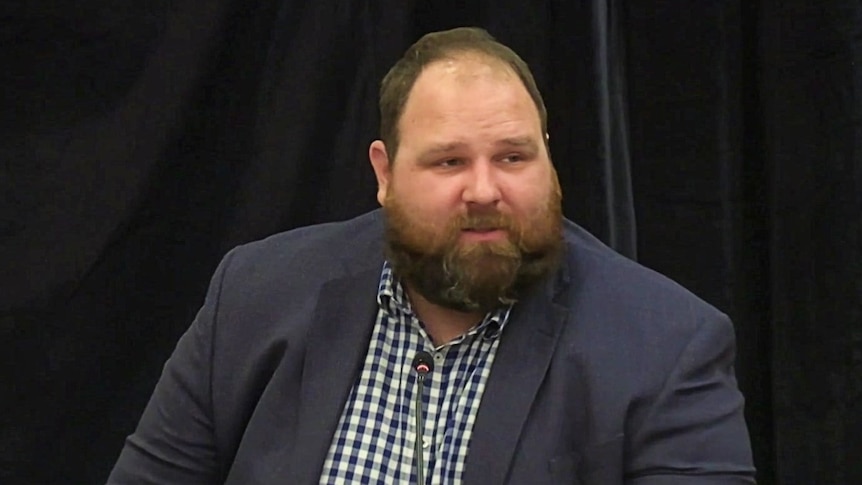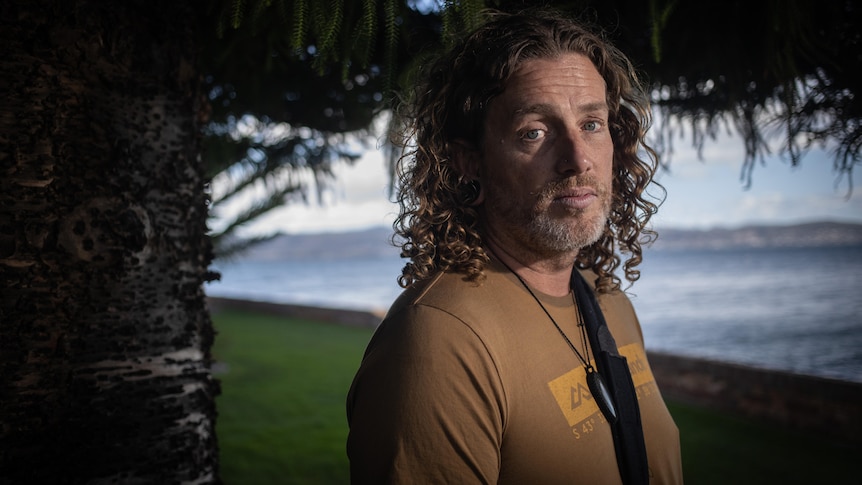A 2015 military deployment to Egypt changed former soldier William McCann’s life.
Key points:
- Mr McCann was initially diagnosed with depression upon his return but was eventually diagnosed with PTSD
- Initially feeling like he had been “left in the lurch” by the Army, he quickly turned his focus to getting as much support as possible
- Mr McCann said he was inspired to give evidence at the royal commission to bring awareness to the struggles that people who experienced less support than he did
Frozen by the constant sound of alarms and gunfire while on deployment there, he feared he would die.
On his return to Australia, that fear and distress spilled out when he met his newborn son for the first time.
“I sort of regret it a little bit today that my first words to him, I don’t know why I said this was, ‘I didn’t think I would get to see you’,” he told the Royal Commission into Defense and Veterans’ Suicide.
“[They] were my first words to my son. It was probably an indicator then [of post-traumatic stress disorder] too, but I didn’t want to admit it to myself.”
Mr McCann said he became so overwhelmed by the noise of “rounds landing, rounds firing and alarms constantly resounding” in Egypt that it triggered his fight or flight response, resulting in him freezing and laying on the ground for an undetermined amount of time.
That incident, and a combination of shame and embarrassment around his reaction, led to a severe deterioration in his mental health.
“I started to realize I was really lacking a lot of confidence… I felt like I really didn’t belong,” he said.
“I felt like I was failing at every step along the way, and I got to feel that my motivation was gone; I just didn’t have that spark I had once before.”
He also started having daily thoughts about taking his own life.
Mr McCann was initially diagnosed with depression upon his return but was diagnosed with PTSD two years later in 2018.
He was eventually medically discharged in early 2019, exactly 13 years after he joined the Australian Defense Force.
Initially feeling like he had been “left in the lurch” by the Army when he was discharged shortly after receiving the diagnosis, Mr McCann quickly turned his focus to getting as much support as possible before he left.
“I didn’t want to be a financial burden on my family,” he said.
He completed multiple PTSD short courses and began the arduous process of finding a new psychologist — something he said was much more difficult outside of the ADF.
One of the ‘lucky’ ones
Mr McCann said he was inspired to give evidence at the royal commission to bring awareness to the struggles that people who experienced less support than he did had faced during and after their careers.
“I’ve been fairly treated by [the Department of Veterans’ Affairs]I’ve gone through the processes, I’ve had a great support network, a great medical network with me and a very supportive family,” he said.
“However, despite that, throughout my time dealing with a mental condition and post-deployment, I’ve suffered with almost persistent suicidal ideation, culminating in points where I actively planned my own suicide.
“I feel as though I’ve been lucky, and yet I found myself in a place where I felt the right thing to do was to kill myself.
“So, I felt that if I can be in that spot, those who don’t have that fortune that I had must be in a hell of a lot worse place.”
He called on the ADF to recognize that some of his personnel would be diagnosed with post-traumatic stress disorder and to develop strategies to support service personnel and veterans.
Mr McCann also called for a change to the culture where people on medical leave are labeled “lingers”, saying it delayed him getting treatment.
“It prevented me from coming forward and speaking out because I was just fearful that I didn’t want to appear weak,” he said.
The commission will finish its Hobart hearings on Wednesday, and hand an interim report to the Governor-General on Thursday.
.

